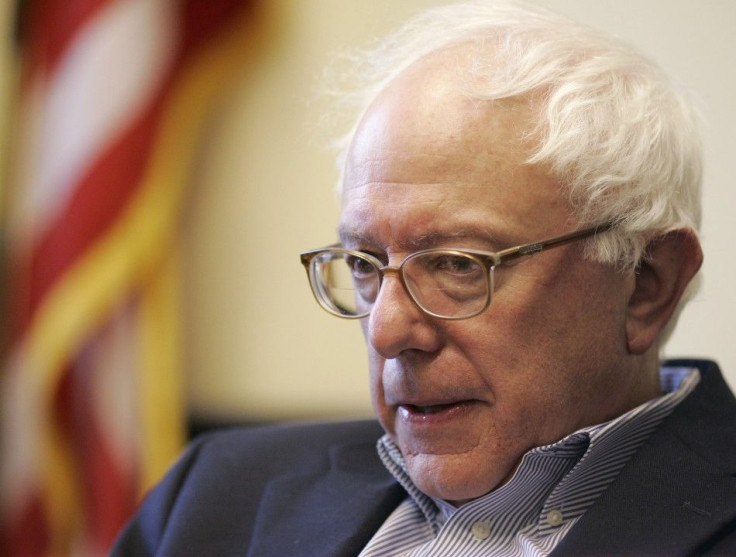Sanders Sponsors Bill to Curb Oil Speculation

In a sense, U.S. Sen. Bernie Sanders, I-Vt., is madder than you-know-what about high oil and gasoline prices, and he's not going to take it anymore.
Sanders, a critic of oil speculators (to say the least), leaked confidential Commodities Futures Trading Commission (CFTC) information on the extensive positions in oil futures held by various financial industry institutions in the run-up to record high oil prices in 2008, and he's arguing the CFTC should have both intervened to check the excess, and also should have released the information on speculators.
Sanders: Public Has A Right to Know
The CFTC has kept this information hidden from the American public for nearly three years, Sanders told Reuters. This is an outrage. The American people have a right to know exactly who caused gas prices to skyrocket in 2008 and who is causing them to spike today. Sanders is an Independent who usually supports Democratic Party positions in the Senate.
This report clearly shows that in the summer of 2008 when gas prices spiked to more than $4 a gallon, Goldman Sachs, Morgan Stanley, and other speculators on Wall Street dominated the crude oil futures market causing tremendous damage to the entire economy, Sanders said, in a statement. The CFTC has kept this information hidden from the American public for nearly three years. That is an outrage.
Oil closed Monday up $1.86 to $84.12 per barrel. During the leveraging boom, oil soared to $147.27 per barrel in the summer of 2008. When credit markets then froze-up during the financial crisis' acute stage in the autumn 2008/winter 2009, the price of oil, incredibly, then crashed to about $35 per barrel in less than six months.
The oil market is notorious for its volatility, but to have a commodity's fundamentals justify a $147 price, then have that same commodity priced at $35 in six months perhaps allocates more power to the pricing mechanism than reason would justify.
Is Oil's Price Artificially High?
In other words, is Sanders' anger justified? Is Sanders right that every financial-player-with-the-means, or so it seems, is boosting oil's price higher than what current oil supply and demand fundamentals would justify, to the determinant of the U.S. economy and to the monthly budget pain of American drivers and families?
As a defense, oil futures market participants would argue that: 1) they are only playing by the rules of the game, 2) other factors, beside supply and demand -- fear of inflation, fear of a weaker dollar, oil as an alternative asset -- are also playing a role in pushing oil's price higher.
Further, oil futures traders would argue that members of Congress and other critics are overlooking the benefit of the currently-configured oil futures market: despite geopolitical risk and civil unrest in/near several key, oil producing regions, and despite the rise in the demand for crude oil in developing economies, there hasn't been an oil shortage or a disruption in oil's supply in the key oil consuming markets of the world.
Nor has there been, they would add -- a gas line at gas station in the United States. U.S. motorists may have had to pay over $4 per gallon at various stages, but gasoline has always been available.
Legislation Proposed
The above is not nearly enough consolation for Sanders, and he's introduced a bill, the End Excessive Oil Speculation Now Act of 2011, which would force the chairman of the CFTC to impose strict limits on the amount of oil speculators can trade in the commodity and futures markets.
We have a responsibility to do everything we can to lower gas prices so that they reflect the fundamentals of supply and demand and bring needed relief to the American people, Sanders said.
Energy/Public Policy Analysis: A way must be found to at least pilot test Sanders' theory.
Here's one way it could be done: incrementally increase margin requirements for oil futures, then observe what happens to oil's price. All other factors being equal, if the price of oil drops incrementally, but steadily, and without shortages or gas lines, then perhaps the price of oil had more to do with speculators' participation than with objective oil supply/demand fundamentals.
Normally, the view from here would side with the free market, but a $147 to $35 to $80 roller-coaster for oil in about a year is asking one to suspend all doubt about the oil futures market's ability to discover a price. Sanders' inquiry is warranted and so is his bill, which should become law.
© Copyright IBTimes 2025. All rights reserved.





















